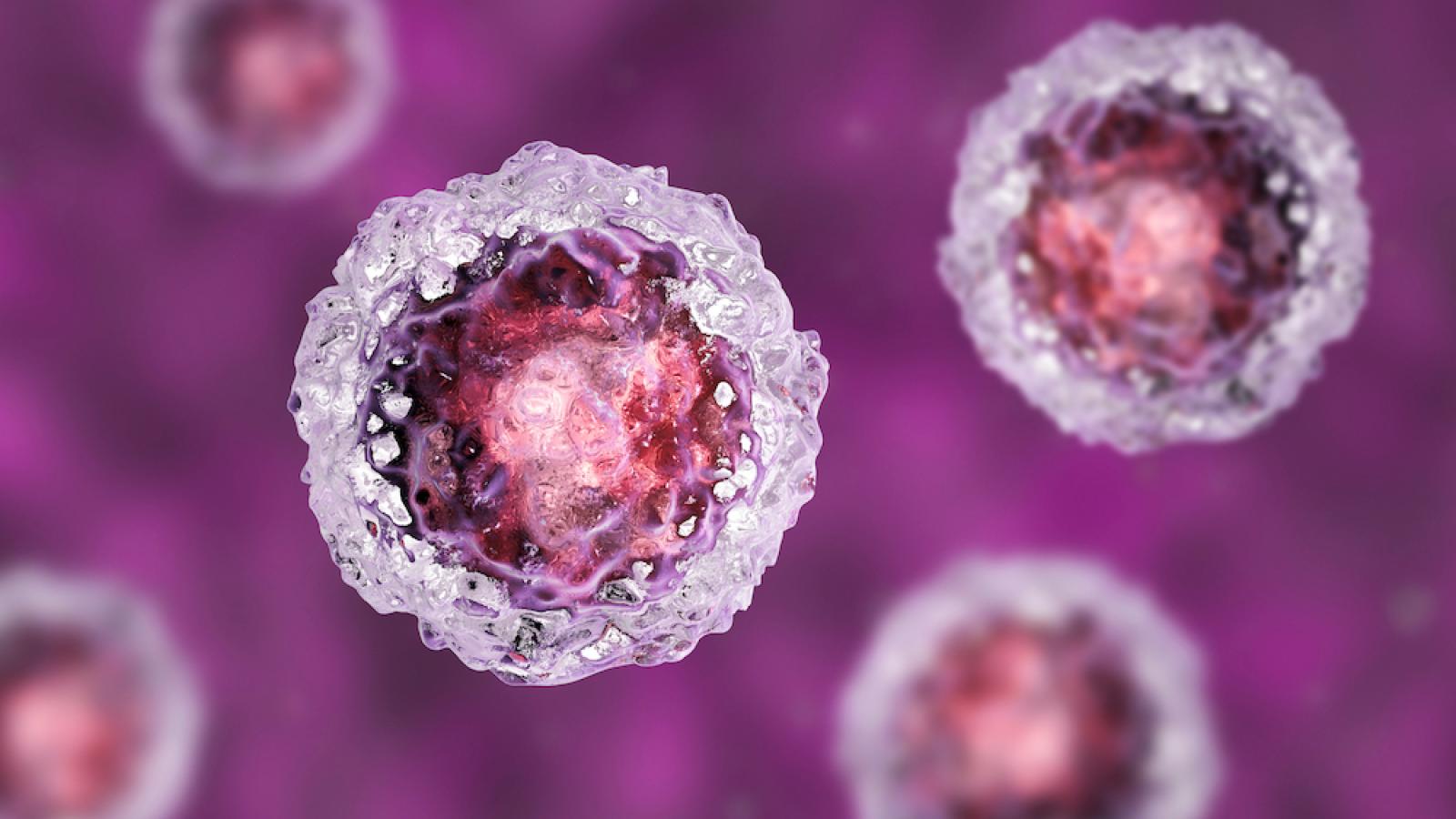A study co-authored by UK DRI researchers has today (10 July) outlined a new cell-based system for studying Alzheimer’s disease, which could accelerate drug testing. The technology was also used to identify that the gene BACE2 may be involved in suppressing the progression of Alzheimer’s disease, opening avenues for new therapeutics.
A major challenge in testing Alzheimer’s drugs in clinical trials is that participants need to have symptoms. However, at this stage of disease progression, it is usually too late for treatments to have a significant effect, as many neurons have already died. The only current way to test potential preventative treatments is by identifying participants who are at higher risk of developing Alzheimer’s and seeing if treatments prevent the onset of their disease. This includes people with Down syndrome who have around a 70% chance of developing Alzheimer’s during their lifetime. This is because the extra chromosome 21 they carry includes the gene for amyloid precursor protein which causes early Alzheimer’s when at high levels or mutated.
In this new study led by researchers at Queen Mary University London and published in the Nature group journal Molecular Psychiatry, researchers collected hair cells from people with Down syndrome and reprogrammed them to become stem cells, which were then directed to turn into brain cells in a dish. In these brain-like cells or ‘cerebral organoids’, the researchers saw Alzheimer’s-like pathology develop rapidly, including the hallmark trio signs of Alzheimer’s disease - amyloid plaque-like lesions, progressive neuronal death and abnormal accumulations of a protein called tau inside neurons.
Lead researcher Professor Dean Nizetic from Queen Mary University of London, said: “This work represents a remarkable achievement, as this is the first cell-based system that has the full trio of Alzheimer’s-pathologies, without any artificial gene overexpression.
This system opens up the prospect for screening for new drugs aimed at delaying or even preventing Alzheimer’s before neuronal death starts.”
The researchers showed that the system could be used as a testing platform for drugs intended for early prevention. Taking two different drugs which are known to inhibit amyloid-beta production, the researchers showed that in just six weeks they had prevented the onset of Alzheimer’s-pathology. Although these two particular drugs have failed clinical trials for other reasons and therefore aren’t suitable treatments for Alzheimer’s, the team proved that the system can be used on any drug compound with quick results.
of people with Down syndrome go on to develop Alzheimer's disease during their lifetime
I think we have the potential now to develop a new, human model of the disease which would be a great step forward.Professor John HardyGroup Leader at UK DRI at UCL
The team also found proof of the existence of a naturally-functioning Alzheimer’s suppressor gene, BACE2. Acting in a similar way to tumour suppressor genes in cancer, the increased activity of this gene contributes to the prevention or slowing down of Alzheimer’s in human brain tissue, and may explain the delay in onset of dementia in around 30% of individuals with Down Syndrome. In future the gene may also be used as a biomarker to determine people’s risk of developing the disease, or as a new therapeutic approach by boosting its action.
Professor Dean Nizetic explained:
"Although it’s still early days, the system raises a theoretical possibility for further development as a tool to predict who might develop Alzheimer’s. The same stem cell process could be used on anyone’s hair follicles, the resulting brain cells of which may or may not then develop Alzheimer’s-pathology in the dish. The idea would be to catch the people at higher risk of early disease in a cell-based system, before it starts in a person’s brain, and allow for the possibilities of individualised preventive interventions. We are still a long way from reaching this goal.”
Co-author, Professor Henrik Zetterberg, Group Leader at UK DRI at UCL, said:
“From a biomarker perspective, the results obtained from this cell model, especially in regard to amyloid-beta peptide changes, are so similar to what we have seen in human samples. I believe this model will be extremely useful in translational research to find better drugs against amyloid beta-related diseases.”
The discoveries in this study were dependent on contributions from people with Down Syndrome who kindly accepted to participate in this study, the results of which could be beneficial for people with and without Down Syndrome in preventing Alzheimer’s disease. The Down’s Syndrome Association (UK) provided essential support and help with recruitment of the participants in the study.
Dr Frances Wiseman, Group Leader at UK DRI at UCL and member of the London Down Syndrome Consortium involved in the study, said:
“Using a new preclinical model of Alzheimer’s Disease-Down Syndrome pathology, the authors have provided compelling new evidence of the important role of genes other than amyloid precursor protein gene in the development of Alzheimer’s neuropathology in the context of trisomy of chromosome 21. This work has major implications for our understanding of Alzheimer’s Disease-Down Syndrome mechanism and the selection of drugs for Alzheimer’s primary prevention trials in people who have Down syndrome.”
Reference:
Article published: 10 July 2020 Banner image: Kateryna Kon/Shutterstock.com
